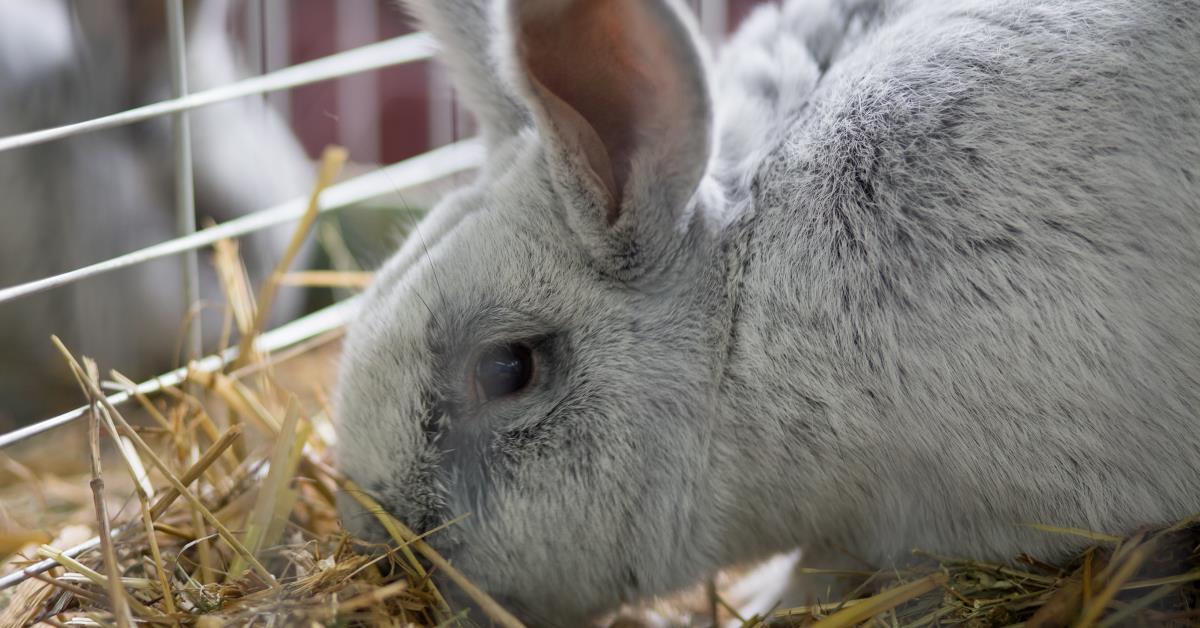
Stress. Even the word makes my blood pressure go up a few points. But it is such a “wishy-washy” word. A stress to me may be an inconvenience to you — or it could even mean nothing at all. How we react to and prepare for stress can make all the difference in how it affects us. Recently, as I was putting fans on the horse stalls in the barn and putting extra water buckets out for the llama, it hit me that I was trying to prevent — or at least reduce — the stress on my animals. When my wife goes to a dog or horse show, we know and practice many “tricks” of the trade, but they all have one purpose, which is to reduce stress so the animals can put all their efforts into performing at their best.
Lots of people have experience with large animals, but let’s talk a little bit about the smaller animals that go to shows and fairs and may even spend time in your living room.
Participation at rabbit shows is growing for younger kids because the rabbit’s size is less intimidating for younger exhibitors than larger animals; this increased interest in showing rabbits translates to more competition at the shows.
Here are a few things you can do to help reduce stress and have better results with rabbits:
- Proper daily grooming will help alleviate a lot of rabbit anxiety.
- Always wear long sleeves or invest in Kevlar slip-on sleeves.
- Never pick up a rabbit by the ears or legs. This can cause injury, including a broken back.
- Carry the rabbit with its head tucked in your arm and with its body supported between your side and your arm.
- Place the rabbit on a piece of carpet when handling it on a table.
- Handle often — but only during coolest part of the day.
- Fans are okay to use, but they will negatively affect the quality of the rabbit’s hair and the direction in which it lays.
- Never wash a rabbit; just wipe it off before the show. It’s best to keep rabbits clean daily to prevent stains from forming.
- Play the radio all the time to get the rabbit accustomed to new and different noises.
- Get rabbits used to having other people around and handling them.
- At the show, plan to have a way to cool the rabbit down — for instance, freeze water in a 2-liter soft drink bottle.
- Monitor for disease regularly to provide quick treatment if necessary.
- Always feed a quality feed like Hubbard Life or Show-Rite® Rabbit Feeds to maximize growth.
- Do not change the rabbit’s feed before or during the show.
- Typically, rabbits will not drink flavored water, so adding electrolytes is usually not an option.
- Borrow or invest in “Standard of Perfection” for rabbits and cavies.
Another group that is growing rapidly on the show circuit is poultry. Much of the advice about handling rabbits also applies to poultry, but here are some more suggestions for reducing stress when showing or handling poultry:
- Handle the poultry often, supporting their breast in your hand and with your fingers on top of their legs. Keep their head between your arm and body and orient them so they are looking behind you.
- Always feed a quality feed like Homestead® or Show-Rite® to maximize growth.
- The old tale of only feeding wheat before a show is wrong; wheat is not a complete feed.
- Feed birds indoors — especially white animals. Once their feathers are stained, it’s hard to get them clean again.
- For white-feathered birds, free-ranging and feeding plants like marigold may result a in the bird having a yellow tint.
- Electrolytes are available to use during hot days but should be rotated with plain water daily.
- Watch for bullying, which can lead to feather and skin damage.
- When they are old enough, separate birds by sex to prevent breeding.
- If a bird does not fit in well with the others, remove it from the group.
- Pen-train your bird. Put it into a show-sized pen and place it near a lot of human activity. An untrained bird may try to escape, which can create stress for other birds, too.
- Once it has been pen-trained, handle your bird like a judge by opening its wings, holding it to your face and moving its head back and forth. Walk around with your bird in your hands.
- Clip the bird’s beak and toenails regularly so they are accustomed to it before a show.
- Get birds to their show pens 30–60 minutes before the judge arrives to allow them to settle.
- Take your time washing the bird, and leave plenty of time for it to dry (i.e., a day, or maybe more). Unless the bird is stained, you may consider just wiping it down.
- Fans are okay to use, but this may be difficult with small cages and sawdust bedding.
- Remember: Birds do not sweat but, rather, pant to get rid of heat.
These tips provide some general ideas to consider before showing smaller animals. Other helpful sites and resources for information include poultrykeeper.com and the Rabbit Resource handbook.
Homestead and Show-Rite rabbit and poultry feeds can take some of the stress out of showing and growing your animals by providing optimal nutrition for great body condition, great-looking hair and feathers, and optimal performance from your animals. Start small, learn from everyone and have fun. Remember: Less stress for your animals also means less stress for you!
- Log in to post comments
